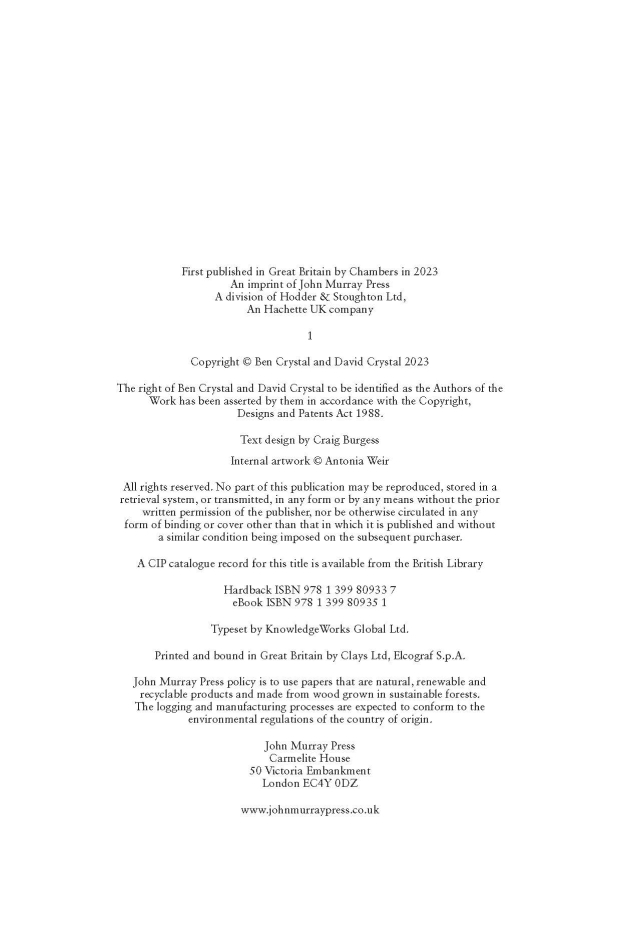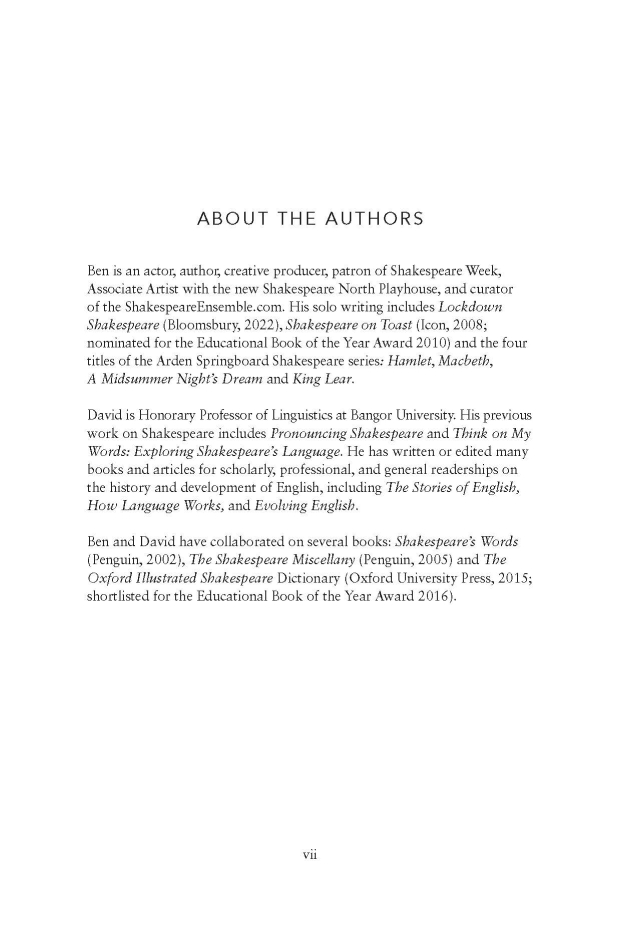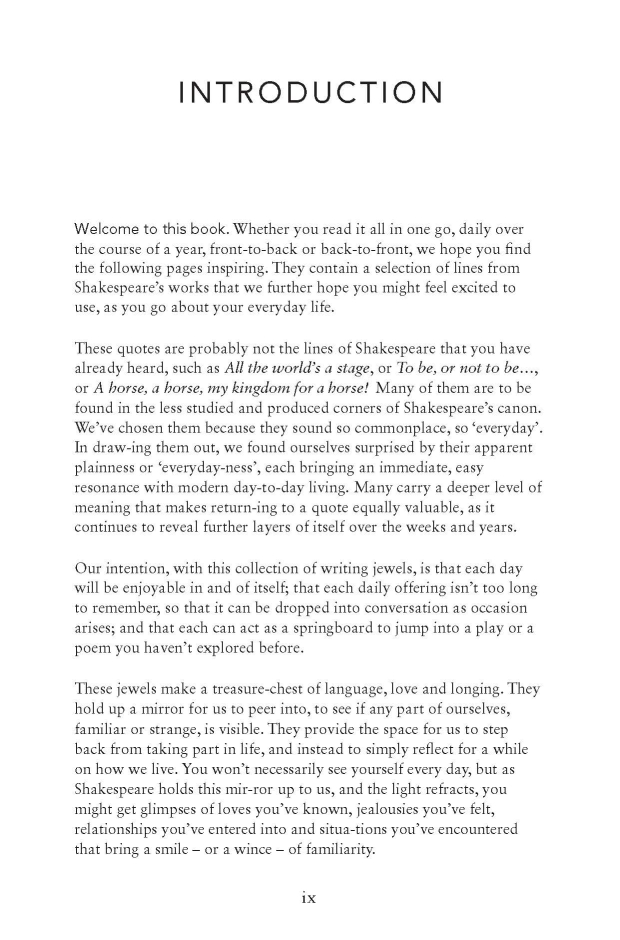In Sonnet 43 the writer describes the way love appears in dreams:
Through heavy sleep on sightless eyes…
All Shakespeare’s Fools have a profound wisdom. In As You Like It, the
melancholy Jacques describes the Fool Touchstone as deep-contemplative.
[Henry V has told Katherine: I speak to thee plain soldier.]
Not so with the lover Claudio in Much Ado About Nothing.
According to his friend, Benedick, Claudio has started speaking more rhetorically,
after having fallen in love:
He was wont to speak plain and to the purpose, like an honest man and a soldier, and now is he turned orthography.
Wont means ‘used to’; turned orthography is a rhetorical way of saying ‘a speaker of stylised phrases’. Benedick perhaps is using fancy words to mock his love-sick friend’s style of speaking.
In Richard 2, the imprisoned Richard describes his finger pointing still (‘always’)
at the outward watch (‘his crying eyes’) as he wipes away his tears:
…the outward watch
Whereto my finger, like a dial’s point
Is pointing still in cleansing them from tears.
Dollar was the English name for German silver coin, the thaler…
The name came from the silver mine at Joachimsthal (‘St Joachim’s Valley’) in Bohemia, where the coins were produced.
The Duke in The Two Gentlemen of Verona assures Thurio, his daughter’s suitor, that Silvia will warm to him in due course:
A little time will melt her frozen thoughts.
This speaker from Much Ado About Nothing perhaps tells a different kind of truth:
The fashion wears out more apparel than the man.
The fast-changing winds of what people consider fashionable makes fine clothes unusable, long before they become threadbare from actually being worn.
Perhaps the most famous instance is Hamlet, who in his existential To be, or not to be… speech reflects how natural intention can wither if you think about it too much
– that the biggest ideas can fall apart, and never be acted on:
…the native hue of resolution
Is sicklied o’er with the pale cast of thought,
And enterprises of great pitch and moment
With this regard their currents turn awry
And lose the name of action.
When Lucentio is smitten after having glimpsed Bianca, in The Taming of the Shrew, his servant asks:
is it possible
That love should of a sudden take such hold?
Lucentio replies:
Till I found it to be true,
I never thought it possible or likely.
Here's a line for when nothing will bring cheer. In The Tempest, King Alonso is distraught, believing his son to be drowned,
and Gonzalo tries to console him. Alonso abruptly tells him to be quiet, and this comment is muttered from the side-lines:
He receives comfort like cold porridge.
Great irritability is not just laid at the weasel’s door. In Henry 8, Queen Katherine tells Cardinal Wolsey:
your heart
Is crammed with arrogancy, spleen, and pride.
The King in Henry 4 Part 1 calls Prince Hal degenerate for mixing with Falstaff and his companions. A strong insult from a father to a son…
Taking control of sorrows is no easy task. Constance in King John no longer wishes to be weighed down by grief, and seeks to teach her sorrows a lesson:
I will instruct my sorrows to be proud,
For grief is proud and makes his owner stoop.
A character in Richard 2 calls hope ‘deceiving’:
I will despair and be at enmity
With cozening hope.
To be at enmity means ‘to be hostile towards’; cozening means ‘cheating, deceiving, fraudulent’.
Henry Bolingbroke in Richard 2 says he’s made of similar stock [to Antony]:
Things past redress are now with me past care.
Redress means ‘remedy’ or ‘improvement’.
There’s also a negative sense of ‘stupidity’ or ‘foolishness’, heard in Romeo and Juliet when Friar Lawrence hears a persistent knocking at his door and wonders,
What simpleness is this! (perhaps the door is being very carefully and quietly knocked on by the Nurse…?)
If you want to avoid heartbreak altogether, take the advice of Mistress Page, in The Merry Wives of Windsor,
who thinks that a moderate amount of chiding (‘scolding’) from her husband is much better than to have her daughter Anne placed in an unhappy marriage:
Better a little chiding than a great deal of heartbreak.
Or as they say, better to have loved and lost that to spend your life living with a psycho.
It’s also possible for someone to lack mettle. Hamlet describes himself as a muddy-mettled rascal – ‘dull-spirited’, for not having yet avenged his father’s murder.
Someone’s choice of words can readily elicit praise, as with this fine line from Timon of Athens:
These words become your lips as they pass through them.
Vile as in ‘worthless’ usually occurs to add an extra layer of ‘degrading’ or ‘ignominious’ to the meaning of a
line. This happens in King Lear, where the King, looking for straw to sleep on, says that the art (the ‘magic’, or
‘enchantment’) of the things we deem necessities in life is strange (‘rare’, or ‘exceptional’):
The art of our necessities is strange
And can make vile things precious.
The sentiment is affirmed hypocritically by Richard in Richard 3:
God bids us do good for evil
If someone says this quote to you, reach for Touchstone in As You Like It, referring to the simple shepherd
Corin. Hearing the Horatio line spoken, roll your eyes, indicate your challenger, and say to another friend,
Such a one is a natural philosopher – in other words, ‘Such deep thinking evidently comes naturally to
someone so obviously clever’.
Full many a glorious morning have I seen
Flatter the mountain-tops with sovereign eye
Where would these mountains have been? Not in Shakespeare’s birthplace,
Stratford-upon-Avon, or London, where he worked. If this image is based
on memory, he may be recalling a stay at Lleweni Hall in Denbighshire,
Wales – the home of the Salusbury family, who had close links with leading
Elizabethan patrons of the theatre world.
Anger, passion. and desire are all brought together by Paris in Troilus and Cressida, who says that love
breeds hot blood, and hot blood begets hot thoughts,
and hot thoughts beget hot deeds.
In Henry 6 Part 2 it’s just the temperature that bothers Jack Cade, when he wishes for a salad
to cool a man’s stomach this hot weather
. He adds, waving a proto-vegan flag:
And I think this word ‘sallet’ was born to do me good
.
Thunder would be an unusual image to include in a love letter, although Berowne does just that, and somewhat ineptly, in Love’s Labour’s Lost:
I thy parts admire.
Thy eye Jove’s lightning seems, thy voice his dreadful thunder, Which,
not to anger bent, is music and sweet fire.
(Jove was the supreme Roman god of thunder and lightning; bent meant ‘directed’ or ‘aimed’.)
Just before the Battle of Philippi in Julius Caesar, Brutus and Cassius bid farewell to each other (and will in fact never meet again):
If we do meet again, why, we shall smile;
If not, why then this parting was well made.
Here's the middle quatrain of this sonnet:
Is it thy spirit that thou send’st from thee
So far from home into my deeds to pry,
To find out shames and idle hours in me,
The scope and tenure of thy jealousy?
The scope (‘full range’) and tenure (‘hold over me’) that your jealousy (‘suspicion’) has of me. Jealousy and pry would have rhymed.
…
And here's the final couplet:
For thee watch I, whilst thou dost wake elsewhere,
From me far off, with others all too near.
Suspicion can creep into our hearts when we’re yearning in another’s absence. And that suspicion can go both ways: each can
easily think it’s the other person who’s surrounded by others all too near….
(Elsewhere and near would have rhymed too).
Orlando in As You Like It says that all thoughts…are winged.
The ghost of Hamlet’s father tells his son to deal gently with his mother, as heaven – or guilt – will deal with her more roughly:
Leave her to heaven
And to those thorns that in her bosom lodge
To prick and sting her.
This idea is expressed by Helena in A Midsummer Night’s Dream: she remembers when Demetrius hailed down oaths that he was only mine,
but then he saw her friend Hermia:
And when this hail some heat from Hermia felt,
So he dissolved, and showers of oaths did melt.
This advice is easier said than taken, especially when strong emotions are in play – or strong behavioural
patterns. As Coriolanus points out, it’s easy to take someone’s natural ways of being and see them as a terrible fault:
What he cannot help in his nature, you account a vice in him.
This line from Macbeth might be of use, too:
Now does he feel his title
Hang loose about him like a giant’s robe
Upon a dwarfish thief.
Othello reminds us, greatness isn’t for everyone – and not every great one is ‘great’ enough to truly (‘loyally’) follow:
We cannot all be masters, nor all masters
Cannot be truly followed.
Twelfth Night offers that
Some are born great, some achieve greatness, and some have greatness thrust upon 'em.
The Bastard in King John believes the problem is Commodity, the bias of the world; that there is a bias
(‘tendency’) in the world, causing it to go in a particular direction. This bias is commodity ‘self-interest’, or
‘the desire to gain’ (and yet, hypocritically, the Bastard will decide to worship commodity himself).
In Titus Andronicus, Aaron affirms that there is pride to be taken in one’s skin colour:
What, what, ye sanguine shallow-hearted boys,
Ye white-limed walls, ye alehouse painted signs!
Coal-black is better than another hue,
In that it scorns to bear another hue.
For Guiderius in Cymbeline, this flower image suits the whole person, as he calls Innogen the sweetest, fairest lily.
Usually, doom simply means a ‘judgement’. Duke Frederick in As You Like It informs Celia: Firm and irrevocable is my doom
– his ‘decision’ is unavoidable and unshakeable (and as we later see, so will be his ruin).
Returning to the suggestion in today’s lead quote, that goodness is never fearful. Some express scepticism at this idea.
In Hamlet, Claudius warns Laertes of the way goodness can lessen over time:
Nothing is at a like goodness still;
For goodness, growing to a plurisy, Dies in his own too-much.
At a like meant ‘at the same level of’; still meant ‘always’; plurisy meant ‘excess’. In other words, nothing
can keep the level of ‘goodness’ up, and too much goodness will drown itself.
Balance in everything, then, and everything in moderation – including moderation.
Macduff in Macbeth encourages quickness in the telling of bad news, too:
If it be mine,
Keep it not from me; quickly let me have it.
The Captain in Twelfth Night promises to keep Viola’s identity secret as she disguises herself to join Orsino’s court:
Your mute I’ll be
.
When my tongue blabs, then let mine eyes not see.
For Queen Elizabeth in Richard 3, words are poor breathing orators of miseries – the ‘poor spoken deliverers of unhappinesses’.
Horatio uses purse (‘wallet’) metaphorically to sum up the rhetorical contest between Hamlet and the courtier Osric, whom Hamlet
has reduced to near-silence:
His purse is empty already. All’s golden words are spent.
(All’s means ‘all his’.)
Timon himself refuses to know his purse – to acknowledge how much money he has available – an attitude that will lead to his downfall. He reflects on what gold does to people:
This yellow slave
Will knit and break religions, bless th’accursed,
Make the hoar leprosy adored, place thieves,
And give them title, knee, and approbation,
With senators on the bench.
Husbandry was usually associated with the management of domestic economy. Portia in The Merchant of Venice leaves Lorenzo in charge while she’s away:
I commit into your hands
The husbandry and manage of my house.
The word also had a general sense of ‘thrifty or frugal’, and could be used figuratively. In Macbeth, Banquo sees that no stars are out and comments to his son:
There’s husbandry in heaven:
Their candles are all out.
The tension between age and youth is reflected in these lines from Hamlet:
It is as proper to our age
To cast beyond ourselves in our opinions
As it is common for the younger sort
To lack discretion.
Some people never seem to get old; in Antony and Cleopatra, Enobarbus
praises Cleopatra, saying Age cannot wither her.
Helena uses a great metaphor of theft in All’s Well That Ends Well to tell the ailing King of France how long it will take for her medicine to work:
four-and-twenty times the pilot’s glass
Hath told the thievish minutes how they pass.
Glass meant ‘hourglass’, the two connected spheres of glass that you can turn, to allow sand to pour
through, delineating a particular amount of time - typically an hour. For Arthur in King John, the
metaphor is one of caring; the young boy remembers the time he looked after the poorly Herbert, for
many watchful minutes.
For centuries, people believed that human life is merely something to be idly killed by the gods to alleviate their boredom, as King Lear offers:
As flies to wanton boys are we to the gods;
They kill us for their sport.
Sport meant ‘recreation’; wanton meant ‘badly behaved’.
We hear a more positive note when Lucius in Cymbeline recalls Julius Caesar (the historical figure,
not Shakespeare’s play):
…whose remembrance yet
Lives in men’s eyes, and will to ears and tongues
Be theme and hearing ever.
More conventional are I wish you well, and so I take my leave: which is how the disguised Portia leaves Bassanio in The Merchant of Venice.
The Lieutenant in Henry 6 Part 2 echoes her, as he reflects on the tragic melancholy night with its
foul
contagious darkness
. For Tarquin in The Rape of Lucrece the night is hateful, vaporous, and foggy. For the
despairing Enobarbus in Antony and Cleopatra it is a poisonous damp.
It’s when ceremony becomes a symbol of greatness that it receives criticism. King Henry decries it in Henry 5,
comparing his life to the lives of others:
And what have kings that privates have not too,
Save ceremony, save general ceremony?
And what art thou, thou idol ceremony?
And he answers his own question:
Art thou aught else but place, degree, and form, Creating awe and fear in other men?
Place – ‘honour’; degree – ‘rank, station, standing’; form – ‘way of behaving’.
The Merchant of Venice possibly has the most graphic image of envy, as Gratiano sees Shylock sharpening his knife, and says:
no metal can,
No, not the hangman’s axe, bear half the keenness
Of thy sharp envy.
Need a fancy way of saying you’re off for a wander? Then reach for Twelfth Night:
My determinate voyage is mere extravagancy.
Antonio asks if he can accompany Sebastian on his journey, but is refused. Nor is Sebastian able to tell
Antonio where he’s going, for his determinate (‘intended’) course is mere (‘entirely’) extravagancy
(‘wandering around’).
Olivia in Twelfth Night asks Feste what a drunken man is like, and he replies:
Like a drowned man, a fool, and a madman. One draught above heat
makes him a fool, the second mads him, and a third drowns him.
…
For some, it all depends on the occasion or the company. In The Merry Wives of Windsor, after a bad
drinking experience, Slender swears he’ll never be drunk again
but in honest, civil, godly company… If I be drunk, I’ll be drunk with those
that have the fear of God, and not with drunken knaves.
Richard 2 was always in view, but was unable to attract the public’s
…extraordinary gaze,
Such as is bent on sun-like majesty
When it shines seldom in admiring eyes.
In Richard 2, the theme of rarity is illustrated in relation to words rather than events. The dying John of
Gaunt gives the King advice with his last breath, and hopes his counsel will be heard:
Where words are scarce they are seldom spent in vain.









